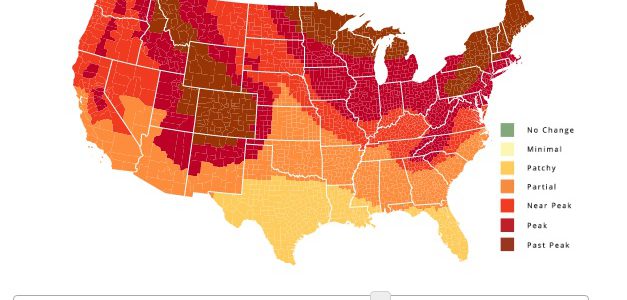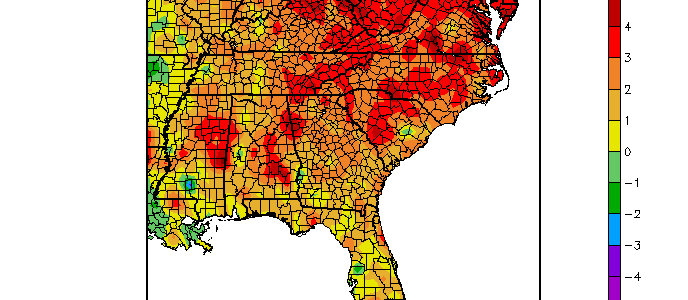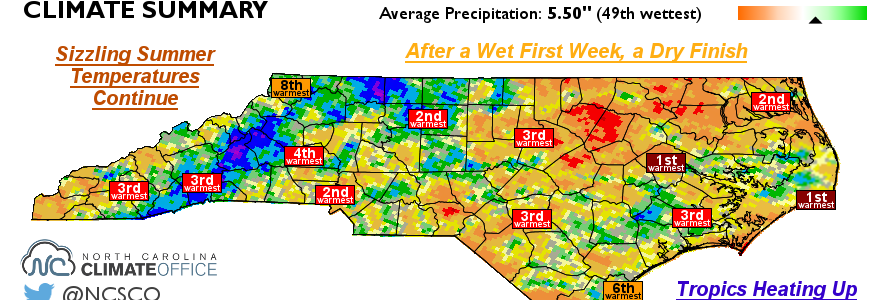Climate summaries
-

As you saw in my drought post earlier today, dry conditions and drought have expanded in many parts of the Southeast except those that have seen tropical activity. The maps for the month to date show the story. A band of heavy rain associate with Hermine and, to a lesser extent, Julia crosses northern and…
Posted in: Climate summaries -

NASA released their global average temperature statistics for August 2016 and found that August was the warmest August in 136 years of global record-keeping. August also tied July 2016 for the warmest all-time month, which is somewhat surprising since usually August is cooler than July as the sun’s energy starts to wane. You can read…
Posted in: Climate summaries -

Now that cooler temperatures have finally returned to the Southeast, it is time to think about fall and the change of colors. There are a number of websites available to help you find times and places to see peak colors. Country Living highlighted a map which shows how peak color moves from north to south…
-

The latest summary for Florida’s climate for August 2016 is now available. You can read it at https://climatecenter.fsu.edu/products-services/summaries/climate-summary-for-florida-august-2016.
Posted in: Climate summaries -

Above-normal temperatures continued in Georgia for a third month, leading to summer average temperatures at or near record levels at stations across the state. While very few daily temperature records were set in August, record runs of days at or above 90 F for maximum temperatures and 70 F for minimum temperatures occurred at a…
Posted in: Climate summaries -

Jon Erdman of WunderBlog posted an article this week based on some work done by folks at the Southeast Regional Climate Center showing that summer was the hottest on record for a number of cities across the US, including many in the Southeast. Many more were the second hottest on record. You can read about…
-

The State Climate Office of North Carolina has issued their climate summary for August today at https://climate.ncsu.edu/climateblog?id=207&h=5666e5c1.
Posted in: Climate summaries